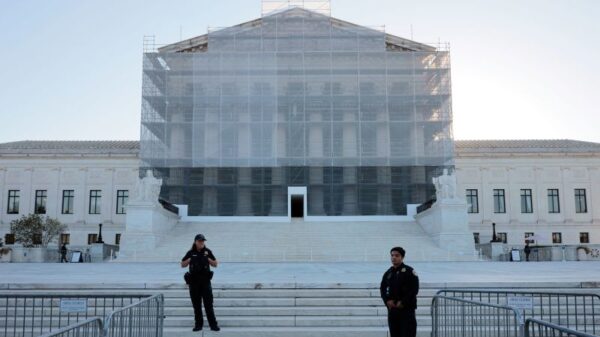Texas State Representative Brian Harrison recently engaged in a heated exchange with CNN’s Kaitlan Collins regarding the contentious issue of redistricting in Texas. During the discussion, Harrison accused Democrats of hypocrisy, asserting that they only raise concerns about redistricting when it does not favor their political agenda.
Harrison’s remarks came in response to criticisms from Collins about the newly drawn district maps in Texas. He argued that Democrats have historically redrawn district lines to benefit their party without facing scrutiny. “Not a single Democrat has ever complained about redistricting when they’ve done it,” he stated, adding that it is only when Republicans take similar actions that they face backlash.
Harrison emphasized that the real issue for Democrats is not the fairness of the redistricting process but rather the fact that Republicans are now utilizing tactics that Democrats have long employed. He pointed out, “What they’re mad about… is that a Republican state is stepping up and doing it.”
The conversation turned particularly pointed when Harrison referenced the actions of Democrats in other states, such as Illinois and California, where he claimed gerrymandering has been prevalent. He noted, “CNN’s fact-checking department is lightning fast when Republicans speak, but mysteriously absent when Democrats redraw maps.” This accusation highlights a growing concern among some politicians and commentators regarding perceived media bias in political reporting.
Harrison did not shy away from discussing broader implications. He referenced the situation in Oregon, where state police were dispatched to locate Republican lawmakers who had left the state to deny their Democratic counterparts a quorum. He asserted that if it is considered an abuse of power for Texas Governor Greg Abbott to compel Democrats to return, then similar actions in Oregon should also be scrutinized.
The exchange illustrates the charged political atmosphere surrounding redistricting, particularly in a state like Texas, which has significant implications for national elections. Redistricting occurs every ten years following the census, and in states where one party holds significant power, the process often leads to contentious debates.
As the conversation progressed, Harrison reiterated his stance that Democrats are reacting defensively to Republican strategies that mirror their own past practices. He asserted that the double standard in how media outlets report on these issues contributes to public confusion and frustration.
The ongoing debate over redistricting in Texas is likely to continue, especially as the implications of these new maps unfold in future elections. The discussions not only reflect the dynamics of party politics but also raise questions about the integrity of the electoral process and the role of media in shaping public perception.
In light of Harrison’s comments, the discourse surrounding redistricting remains a critical issue for both political parties, highlighting the intricate and often contentious nature of American politics today.








































































